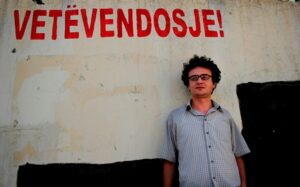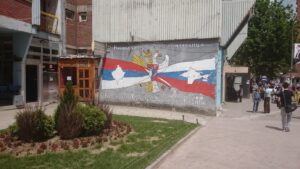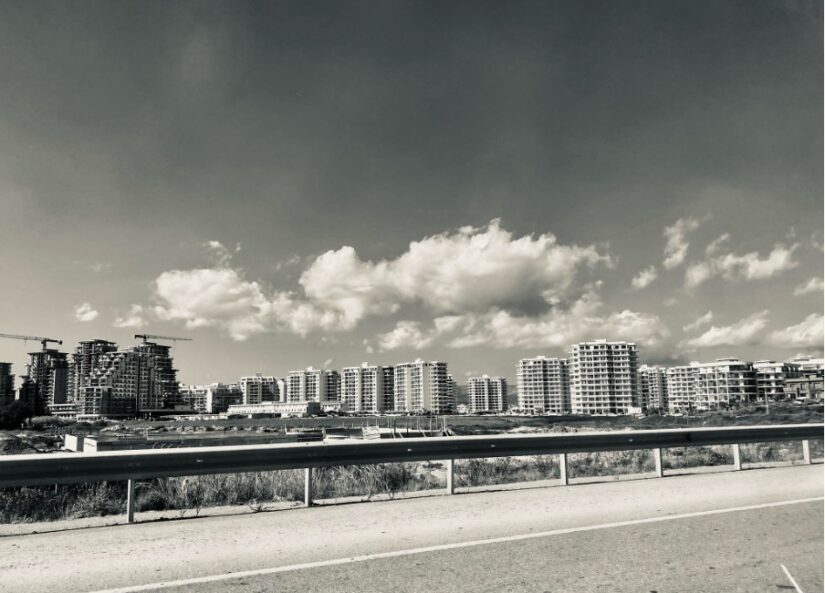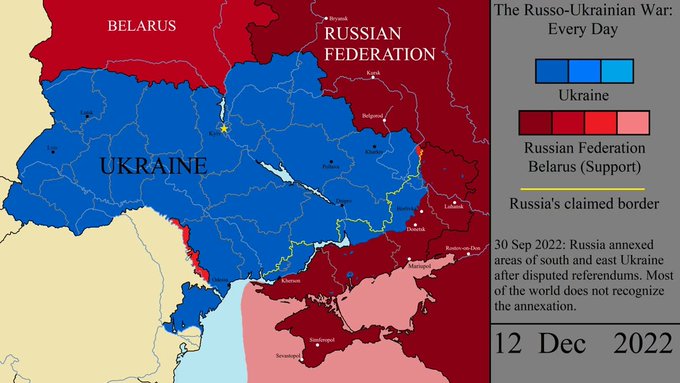Kosovo’s Ambition for a Policy Shift in the Dialogue with Serbia
On February 14th 2021, Lëvizja Vetëvendosje (LVV – Self-Determination Movement), led by the now Prime Minister of Kosovo, Albin Kurti, won the Parliamentary elections in Kosovo. The 50.02% triumph (a record in Kosovo’s proportional system) signalled a new turn in the approach to the EU-facilitated Kosovo-Serbia dialogue. After a few years of sustained political crisis and snap elections, the result meant more stability. However, the victory also signalled an ambition for a shift in Kosovo’s approach towards the dialogue – that is, to make it less visible and to give it less relevance.
When asked about the dialogue after the election results came out, Kurti responded that dialogue was not among his first priorities: “our first priorities are jobs and justice”. This discourse was soon to become official Kosovo policy. The dialogue had previously been a prominent topic in the political agenda for over a decade. This blog discusses Kosovo’s new position towards the dialogue (and Serbia) in LVV’s first year in power, how this has been perceived in the West, and the general implications for the process of normalisation of relations between Kosovo and Serbia.
Vetëvendosje and the dialogue
In comparison to other actors in Kosovo’s political spectrum, Vetëvendosje’s and Kurti’s stance towards the dialogue has been unconventional. Currently the biggest political party in Kosovo, LVV was initially formed in 2005 as a civic movement opposing the Vienna negotiations over the status of Kosovo (2005-2007), through the slogan ’Jo Negociata – Vetëvendosje’ [No Negotiations – Self-determination]. After Kosovo declared independence in 2008, it transformed into a party, entered Parliament in 2010 and has gradually increased in popularity since then. It positions itself as a left-wing party and is known for anti-corruption stances, but it also has catch-all semblances and has been characterised by mixed policy positions, nationalism and populism.
As an opposition party, LVV led protests against the dialogue process and agreements reached through it since the very beginning of the EU-facilitated dialogue in 2011. Some of the most significant protests were organised against an agreement for establishing the Association for the Serbian-majority Municipalities (2015-2017). LVV’s discourse during the opposition years targeted Kosovo officials for making what were called harmful concessions in the dialogue process and, at the same time, for deepening corruption and patronage. It articulated a more self-determinist discourse at the international level, and corruption-free public administration locally.

Image: Young Kurti, now PM of Kosovo, posing in front of the text ‘self-determination’. (Source)
While it could be safely argued that Kurti’s political positioning and rise to power is closely related to the developments in the dialogue process (thus a result of a more nationalist/sovereigntist discourse), it is also noteworthy that LVV’s foreign relations discourse has not been statist. For example, in its first decade of existence, when it was still a smaller party, the idea of the unification with Albania formed the lynchpin of LVV’s political rhetoric regarding Kosovo’s foreign dealings. Gradually this vision was rivalled and eventually lost prominence to the now-dominant statist reasoning, focused on Kosovo’s full membership in the international society.
Since LVV took government power in March 2021, the shift in dialogue policy, as well as towards Serbia in general, has been illustrated both in discourse and actions. In the discourse, Kosovo’s government is adamant that mutual recognition must represent the core of a comprehensive agreement, rather than the final phase of a fractioned agreement. In July 2021, Kosovo’s delegation also proposed a non-aggression pact comprising of six articles: non-aggression, respecting the borders, reciprocity on the protection and promotion of minority rights, peaceful resolution of disputes and mutual support of the European Integration process. It was the first time that the Kosovo delegation came up with a written public proposal. Although it failed to have any substantial impact, as it was refused by the Serbian side, the fact that this proposal and the request for a comprehensive agreement centred on mutual recognition demonstrates a change in Kosovo’s discourse towards the dialogue.
The change in discourse was matched by several public actions. In September 2021 Kosovo announced reciprocity measures on the license plates of Serbian cars entering Kosovo. Accordingly, vehicles entering from Serbia had to place temporary license plates issued by Kosovo institutions, as Kosovars do when they enter Serbia. As a response, protests in the Northern Serb-dominated part of Kosovo erupted and the Serbian Army was stationed close to the border. Following EU mediation, a de-escalation and temporary agreement was reached, and now all cars crossing the borders have to place temporary stickers in their plates. The negotiations for a long-term solution are continuing.
In January 2022, a referendum on the justice system of Serbia was not allowed to be held in areas populated by the Serbian minority in Kosovo, amidst calls by the international community to allow it to take place. Responding to the EU High Representative for Foreign Affairs and Security Policy, who encouraged the ’collection of votes’ from OSCE in accordance to past practices, Prime Minister Kurti responded that Kosovo Serbs with dual citizenship could vote in Serbia’s referendum by mail or in Belgrade’s liaison office in Prishtina. Similarly, in April 2022 the Kosovo government refused to allow OSCE to gather votes for Serbian elections in absence of an agreement signed on the government-level, which was discarded by Serbia.
Overall, these examples indicate that LVV’s position in power has prompted a new approach towards Serbia and the dialogue process. This policy shift is closely related to the party’s identity, and is largely consistent with LVV’s discourse towards the dialogue during the opposition years. The shift seemingly attempts to alter the dynamics of the dialogue process, by making Kosovo a more active player in the negotiations, mobilising support in the West to pressure against Serbia’s ‘balancing’ foreign policy, and distinguishing the LVV’s governance from predecessor governments domestically. However, because of the grounded power asymmetries and the importance that the dialogue process plays for the projections of a wide range of actors, some broader considerations must be taken into account.
(Not) all is quiet on the Western front
Kosovo’s ambition for a shift in approach has spurred reactions in the West. In January 2022, the EU High Representative for Foreign Affairs and Security Policy singled out Kosovo’s government by stating: “I want to make clear, and we will make clear again to Kosovo, that the Dialogue is not for the sake of Dialogue, [it] is because it is crucial for the advancement on the European path.” Regarding the Referendum the QUINT (the United States of America, France, Germany, Italy, the United Kingdom, and the European Union) issued a statement where they “noted with regret” that the Kosovo government did not allow the OSCE to conduct the collection of the votes. In regards to the elections the QUINT took an even harder line, stating: “[w]hile we appreciate Serbia’s availability to find a solution, it is with great disappointment that we take note of Kosovo Government’s decision to reject a constructive proposal presented by the Quint… [s]uch an attitude of the Kosovo Government is not in line with our values and principles and will undermine its European aspirations.”
Based on such reactions, it is difficult to claim that Kosovo’s recent change in approach has achieved the result of inviting pressure on Serbia. In fact, it is the Western rhetoric towards Kosovo which may have been harshened. Seen more broadly, this rhetoric can also be seen as part of the wider Western regional policy, where Serbia, and specifically President Vučić, is perceived as one of the key guarantors of stability and security in the Balkan peninsula. In recent years the Western powers have been receptive towards Serbia’s balancing foreign policy, which seeks deepening ties with Beijing, Brussels, Moscow and Washington simultaneously.
Thus far, the West has also accepted Serbia’s partial alignment in foreign policy. For instance, Serbia has not joined sanctions against Russia after the invasion of Ukraine, while symbolically supporting the United Nations resolution condemning Russian aggression. It remains to be seen how the war in Ukraine will impact these dynamics in the long run. Some analysts have claimed that the longer the duration of the Russian aggression against Ukraine, the higher the likelihood that Serbia will be compelled to pick sides. However, thus far there are no signs that Serbia’s positioning has imposed costs in its relations with the West (i.e. EU Enlargement Policy, visa regime etc.).
In general, the West has shown unwillingness to undertake actions which could potentially push Belgrade closer to Beijing and Moscow. This represents one of the key areas in which Kurti’s attempts to change the dynamics of the dialogue seem to run into trouble. In the grand scheme of things, Kosovo has been regarded partly as an object in the West’s relations with Serbia, and partly as a negotiating subject with its own interests. Indeed, Kosovo’s agency and leverage in the process remain severely limited, and LVV’s ambition to make the dialogue less visible and relevant has not paid off.
Thus, what are the prospects for reaching an agreement to normalise relations between Kosovo and Serbia, amidst these local, regional and international developments? On the Western front, there are indications that Russia’s aggression towards Ukraine could instil a new urgency towards the dialogue process, as a way to bolster transatlantic dominance and diminish Russian influence in the region. However, the Western states are likely to continue to consider Serbia as the centrepiece of their regional policy, hence drastic changes appear unlikely.
For as long as allowed, Serbia will continue its EU integration path, whilst using its partnerships outside the Belgrade-Brussels-Washington axis as leverage in this mission. Despite the fact that Vučić remains by far the most dominant political player domestically, according to some analyses, the anti-Western propaganda (possibly fuelled also by the Serbian President controlled media) is mounting into a challenge that cannot be overlooked. Indeed, the slight rise of two far-right groups, and one conservative Eurosceptic party in the recent elections, as well as the recent pro-Russian protests in Belgrade indicate that the anti-Western narratives in Serbia are here to stay. A recent poll showed that the support for EU membership in Serbia has actually decreased. The more the anti-Western narratives in Serbia intensify, the higher the political cost of signing an agreement for normalisation of relations with Kosovo for Vučić, therefore the less likely he is to sign.

Image: A mural in North Mitrovica demonstrating allegiance between Serbia and Russia. (Source: Eiki Berg)
On the other hand, as the weaker party, Kosovo will continue to be (almost fully) dependent on the support of Western states for the negotiations. In spite of the recent attempts to test the limits of the Western powers, Kosovo is faced with limited international pathways at its disposal, therefore the relations with the West remain vital. Furthermore, Kosovo’s international position, characterised by rather low leverage and agency, is also likely to continue to make it more vulnerable to external pressure. The dialogue process is expected to remain highly asymmetrical, which would be reflected in any potential agreement.
To sum up: since its accession to power LVV has taken a tougher line in the dialogue process, aiming to undercut Serbia’s balancing foreign policy and direct pressure towards Belgrade. However, in light of the recent reactions from the West to these efforts, it is difficult to claim that such a shift has been effective in strengthening Kosovo’s position at the negotiating table. Because of the power asymmetries, as well as the West’s perceived best strategy to expand influence in the region, such endeavours to reshape profound understanding and processes are bound to yield limited results.
At certain moments, it is also possible that Kurti will use the card of unification with Albania, seeking to expand the leverage vis-à-vis the others (including the West). However, such a move would not represent a novelty for the discourse of Kosovo leaders, as it was also brought forth sporadically by the previous Kosovo President, attempting to pressure EU to reach positive decisions (i.e. visa liberalisation).
Author: Butrint Berisha






